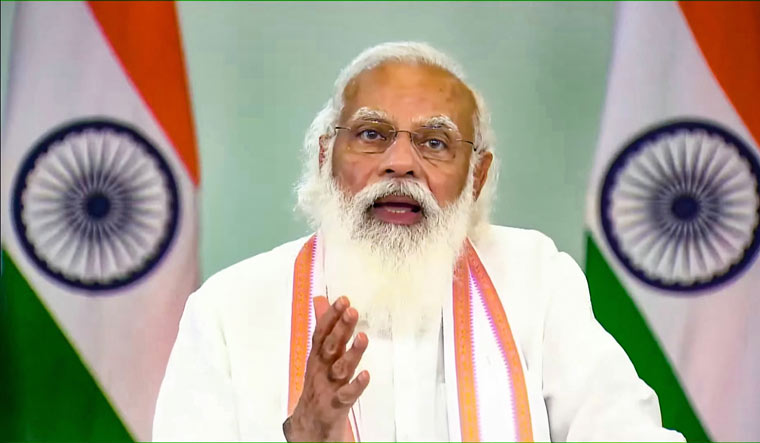Calling the National Education Policy a big factor in the mahayagna of national development, Prime Minister Narendra Modi launched multiple initiatives to mark the first anniversary of NEP 2020. It will be the guiding framework to transform the Indian education sector in the next few decades. NEP 2020 had replaced the one instituted in 1986.
Pointing out how online education became the norm since the pandemic struck, the prime minister emphasized the utility of the online learning platform Diksha that was launched by him four years ago. Diksha, which exists as an app and a website, has textbooks for students and training modules for teachers. The portal registered 2,300 crore hits emerging as a crucial learning tool for students stuck at home.
The prime minister launched the Academic Bank of Credit which is set to provide multiple entry and exit options for students in HIEs. Fourteen engineering colleges spread across eight states will begin offering degrees in regional languages, including Hindi, Marathi, Tamil, Telugu, and Bengali, for the new academic year (2020-21). The work on translating the courses in 11 different languages for online and offline content is already on. A tool has been developed for translating engineering courses. This emphasis on mother tongue as the medium of instruction is expected to bridge the rural-urban divide. However, it remains to be seen how technical journals will be translated into regional languages as jargons, scientific concepts and academic-speak in peer-reviewed journals is hard to communicate in local languages in the absence of corresponding equivalents.
Other initiatives to improve equity and access include Vidya Pravesh, a three-month play-based school preparation module for Grade 1 students in remote areas. Sign Language has been recognized as a subject at the secondary level. More than three lakh students are expected to benefit from this. To create a"future-ready" modern student demography, there is increasing mention of machine learning, data analytics and Artificial Intelligence (AI). A website dedicated to AI has been created.
The event also witnessed the launch of National Digital Education Architecture (NDEAR) and National Education Technology Forum (NETF). "There are many practical initiatives taken today and very much in line with what would improve education immediately in India. A very good initiative is for specially-abled children as sign language becomes a subject and part of the curriculum. The Vidya Pravesh programme will allow children and parents of remote areas to have access to playschools," says Sunita Gandhi, educationist and founder of City International School.
'Structured Assessment for Analyzing Learning Levels' (SAFAL) is purported to take away the fear of examination. "As we hit a year to the release of bold and reformative NEP, the initiatives launched by the PM today convey a sharp bias for action. Long-awaited reforms in professional development of teachers (NISHTHA 2.0), progressive competency-based assessments (SAFAL), play based innovative modules (Vidya Pravesh) and a clear emphasis on digital transformations (NETF and NDEAR) are truly laudable," says Manit Jain, chairman of FICCI Arise and co-founder of the Heritage Group of Schools.
In a bid to create more modern classrooms, some experts say there should be some kind of reworking of strategy to address socio-cultural gaps."Discursive spaces in college classrooms, especially in Delhi, are huge where confident English-speaking students from a metropolitan city share space with students of weaker socio-cultural exposure from provincial towns. How do you bridge these basic gaps?," asks Amit Singh, assistant professor in English.





